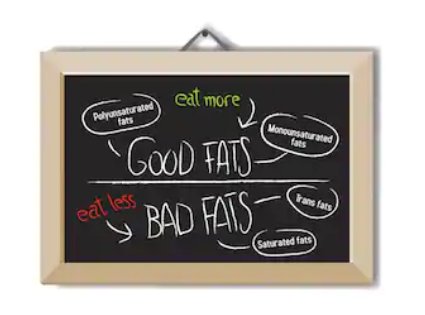Want to lose weight while in love with fats!

Tried and botched to reduce weight earlier? You may feel that diets do not work for you!
You are probably true - some diets do not work at all and none of them work for everybody. Our bodies frequently react in a different way to different foods. But while there is no easy way to lose weight, there are quite of steps to develop a better relationship with food, curb emotional triggers to overeating, and achieve lasting weight-loss success.

Four popular weight loss strategies
1. Cut calories
Experts believe that effective weight management comes down to a simple equation. If you eat lesser calories than you burn, you lose more weight. Sounds easy, right? Then why is losing weight so tough?
Weight loss isn’t a linear program. When you downsize calorie intake, you may shed few kilos for the initial few weeks and then suddenly the something changes. You eat the same amount of calories but you fail to lose weight or the weight loss becomes slow. That is because when you lose weight you are losing water and lean tissue along with fat, and then the metabolism slows down, and your body reacts in a different manner. So, in order to continue dropping weight every week, you need to continue with calorie deficit diet.
A calorie isn’t always equals to calorie such as eating 100 calories of French fries, can have a dissimilar effect on the body than eating 100 calories of broccoli. The trick for continued weight loss is to quit package food which is high on calorie and those are not filling such as a packet of candy or burger or pizza and replace them with foods that fill you up without being loaded with calories such as salads, meat, and vegetables. Many of us don’t always eat simply to please hunger. We also turn to food to comfort emotions or relieve stress which can rapidly derail any weight loss program.
2. Cut carbs
A changed way of observing weight loss recognizes the problem as not one of consuming too many calories, but rather the way the body stores fat post consuming the carbohydrates precisely the role of insulin hormone. When you eat a meal, carbohydrates from the food enter the blood as glucose. In order to keep your blood sugar levels in control, the body always burns off this glucose first and then the fat from the meal.
If you eat carbohydrate rich foods such as rice, pasta, bread, or French fries your body secretes insulin in order to help with the influx of glucose into your blood processing from the food. As well as regulating blood sugar levels, insulin does two things: it creates more fat cells for storing everything that your body can’t burn off and it prevents your fat cells from releasing fat for the body to burn as fuel because the priority is to burn off the glucose first. Hence, as result you gain weight and now your body needs more fuel to burn, so you eat extra.
Since insulin is only able to burns carbohydrates, you tend to crave more for carbs and thus start a vicious cycle of eating carbs and putting on weight. So, in order to shed kilos, the reasoning goes, you need to disrupt this cycle by reducing or limiting the carb intake.
Most low-carb diets promote swapping carbs with fat and protein, which could initially have some negative effects on the health such as headache, nausea, constipation, elevated body heat. However, these subside soon. If you do attempt a low-carb diet, you can lessen the limits and risks your intake of Trans and saturated fats by selecting fish, lean meats, and vegetarian sources of protein such as cottage cheese, soybeans, lentils or eating plenty of leafy greens, non-starchy vegetables, and low-fat dairy products.
3. Cut fat
It has become mainstay of many diets to cut down fats if you don’t want to reduce fat. Walk down any aisle of grocery store and you will be bombarded with dairy, fat free snacks, and packaged foods. But while our low-fat choices have exploded, so have obesity charges. So, what went wrong? Why the low-fat food plans have didn’t work for most of us?
Well, it is to be noted that not all fats are bad. There is a whole new bunch of good or healthy fats are there. Which can really benefit to control your weight, as well as manage fight fatigue and mood swings? These good or healthy fats are called as unsaturated fats; these are mainly found in nuts, avocados, seeds, tofu, soy milk, and fatty fish, which help to fill you up. We often make the wrong trade-offs. Many of us make the mistake of swapping fat free foods such as low fat milk, low fat yoghurt. However, good fats make you lose stubborn body fat.
4. Don’t Mix Emotions with Food
Most of us don’t always eat purely to satisfy hunger. There are times when we turn to food when we’re either anxious or stressed, which can pack on the pounds and wreck any diet.
Do you eat when you are lonely, worried, depressed or simply bored? Do you munch which watching your favourite TV shows? Recognize this pattern of binge eating when you are emotionally distressed. Mixing food when emotional can slowdown your weight-loss journey.















































